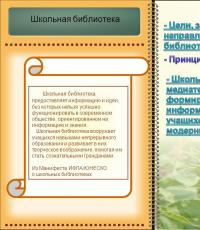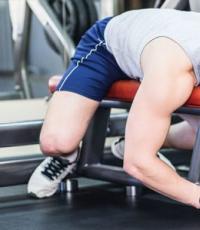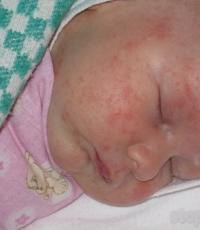Is it possible to parrot cockatiel bread. Bread and budgie: to be or not to be? Daily norms of plant foods
The first thing to think about when you decide to get a budgerigar is its nutrition. Only the right diet and the exclusion of prohibited foods from it can ensure a long and happy life your feathered pet.
Thanks to a good base, which includes grain mixtures, your bird will always be active, cheerful and mobile. But how to understand the variety of products, as well as such opposing opinions of specialists? Is it possible to give these birds cottage cheese, oats, seeds and bread?
In order to provide the right diet for your pet, you need to analyze their life in the wild. As a rule, budgerigars live in a tropical climate, where there is a lot of greenery, seeds, and also animal food in the form of spider bugs. However, domesticated birds have been living near us for many years, in urban conditions, so they have already managed to adapt to ready-made feed mixtures.
Conventionally, it is possible to divide all food for budgerigars into vegetable and animal origin.
 Today, breeders and feed manufacturers for budgerigars did not come up with anything better than a feed mixture consisting of several types of grain:
Today, breeders and feed manufacturers for budgerigars did not come up with anything better than a feed mixture consisting of several types of grain:
- millet yellow;
- red millet;
- white millet;
- peeled oats;
- unpeeled oats;
- canary seed;
- flax seeds;
- raw sunflower seeds (not more than 1%).
In addition to grain mixtures, which you can prepare yourself, or you can purchase quality products in pet stores, budgerigars must be given other plant foods.
- tops of vegetables;
- herbs;
- greenery;
- fruits and vegetables;
- pumpkin seeds in a small amount (peeled).
You can give wavy and porridge. Buckwheat, rice, millet are especially held in high esteem by these birds. All this can be given boiled at the daily rate.
All kinds of beetles, larvae, insects belong to animal feed, however, in large quantities you can hardly find them in the apartment.
Therefore, it is very useful to give products such as:
- cottage cheese (not fatty, up to 9% fat);
- sour-milk cheese (preferably without salt);
- hard-boiled chicken eggs.
In order for your bird's diet to be balanced, you need to carefully consider the menu, which will include all these products: seeds, cottage cheese, cheese, cereals.

Daily norms of plant foods
Each owner, for sure, thought about how to make the right diet for his pet. What rules must be observed so that the bird does not gain excess weight and had no problems with the digestive system?
The grain mixture, which should include oats, should not exceed 20 grams per day. Sometimes birds eat it right away in a day, but it is important not to forget that it is impossible to allow a bird to starve. It is desirable to create correct menu for poultry, which will include cereals, cottage cheese, seeds, cheese, bread.
Sunflower seeds are very oily and fatty, so don't give them daily. Oats in the mixture can also be unpeeled, its wavy is cleaned with pleasure, and the shell also retains beneficial features grains.
It is very important and useful to give the budgerigar and sprouted grains. It is especially good to introduce them into the diet of your pet in the autumn. winter period. There are a lot of useful microelements and vitamins in the sprouted grain, which are so necessary for your bird at any age.
Sprouting a grain is quite simple: you can take a tablespoon of millet, oats or other raw grains, pour it warm water for the night. In the morning you will see that the grains are swollen and nodules have appeared in them.
In this form, you can give them to a budgerigar. The only caveat: sprouted grains spoil very quickly, so do not soak a lot of grain at once, and also remove the excess of such food from the cage in a timely manner.

Can a parrot have bread?
As you know, bread is made from plants such as wheat, rye and other grains. However, you can often find on the forums the opinion that this product is strictly forbidden to give to budgerigars.
Let's try to figure out why there is such an opinion and is it really so?
Budgerigars are indeed strictly forbidden to give rye bread. It is this type of product that can provoke obstruction in the goiter, as a result, the bird may die. The softened crumb is very sticky and budgerigar Chik can't handle it on his own.
As for white bread, it can be given in small quantities. Since it contains yeast, sugar, salt, flour, it is quite high in calories. In addition, the digestive system of birds is not designed for such food, so it’s better not to get carried away.
What is the consumption rate for this product? Bread can be given 2 times a week as an addition to vegetable mixtures, for example, with grated carrots. Also, it can be added to grated beets to prevent softening of the stool.

What kind of cereal can wavy?
In order to diversify the nutrition of the budgerigar, these birds can cook porridge. These birds are happy to eat buckwheat, rice, oatmeal, pea, millet porridge. You can also add sprouted oats to them.
As for the cooking method, in no case should you add salt, sugar, milk to them. Budgerigars do not have an enzyme in their body that allows them to digest milk, as a result of which dysbacteriosis can develop in the bird.
As for the richness of porridge, this is for the taste of your feathered friend. Some people like more viscous porridges, while others like crumbly ones. Sometimes a little honey can be added for sweetness. What are the standards for this product? From autumn to spring, porridge can be fed with wavy 2 times a week for 5-10 grams. In the summer, the rate of carbohydrates can be adjusted with fresh green fodder or steamed grain.
In addition to plant foods, the budgerigar can also be given food of animal origin. As a rule, these are cottage cheese, cheese, eggs, which are indispensable in the winter, and also if your parrots are currently in the period of nesting and rearing offspring.
For a female, cottage cheese is very important because it contains a very impressive supply of calcium. But you have to be very careful with cheese: it almost always contains salt, which adversely affects the health of the wavy, and cheese can also be very fatty.
You should exclude for yourself two main ERRONOUS positions: A) the wavy man himself knows HOW MUCH he has and B) the wavy man himself knows WHAT he has. Most experts agree that the food from your table, with the exception of a number of fruits, vegetables and berries, will not benefit your parrot, moreover, it will harm his health. Here are the products that, according to a number of domestic and foreign experts, should be excluded from the diet of the budgerigar
BREAD and MILK . Not everything that is written in brochures / books about budgerigars should be taken as the ultimate truth. Even modern publications can and often contain quite outdated information. An example of this is the advice to include bread and milk in the budgie's diet. Based on even the most general ideas about the living conditions of budgerigars in the nature of their native land - Australia, one can logically come to the conclusion that the body of the budgerigar, in principle, is not adapted to digest these products: there are no special enzymes for that at all, or in the right amount. So, the fact that birds hardly digest lactose, milk sugar, has been scientifically confirmed. The process of fermentation develops in the intestines, diarrhea can be observed. The consequence of drinking milk can be chronic dysbacteriosis. Restoring the normal microflora of a bird is not as easy as it might seem at first glance. As for bread, although the wavy ones willingly eat it, there is little benefit from it. As a rule, a small cracker (namely a cracker, not fresh bread) of white bread is given as a treat or encouragement when training a bird and very, very rarely. The use of bread can lead to digestive disorders, microflora disturbance, fermentation.
CHEESE .
Some dairy products (cheeses, yoghurts, etc.) contain little or no lactose compared to milk. So, wavy willingly and even greedily eat cheese. Despite the fact that cheese is a good source of calcium, this product should not be abused - only as a very rarely given delicacy during training. There are enough arguments “against” cheese for this: excessive fat content (load on the liver), salinity (see below for salt), casein. The latter can accumulate in the goiter or in the pregastric region, causing indigestion.
SPICES
(dill, parsley, celery, etc.) The question of "give-not give" is controversial to this day. Herbs are high in essential oils, which are potentially toxic to birds. Since violations  birds are not always obvious in the work of the body, and the use of spicy herbs can provoke an exacerbation, it is wiser to play it safe and not give such greens at all, or give in a very small amount every 2 weeks. Spicy herbs can be easily replaced with other herbs that can be grown at home: white-flowered tradescantia, plantain, wood lice (aka medium chickweed), nettle, beet leaves, etc.
birds are not always obvious in the work of the body, and the use of spicy herbs can provoke an exacerbation, it is wiser to play it safe and not give such greens at all, or give in a very small amount every 2 weeks. Spicy herbs can be easily replaced with other herbs that can be grown at home: white-flowered tradescantia, plantain, wood lice (aka medium chickweed), nettle, beet leaves, etc.
SPINACH. Despite the fact that spinach is included in the list of greens that can be given to a budgerigar, you should pay attention to the following information (foreign source). In spinach (along with rhubarb, tea and some indoor plants, for example, dieffenbachia) there is a high content of oxalic acid (oxalate), which effectively binds calcium and a number of trace elements, making them inaccessible for absorption by the bird's body. Low levels of oxalates can reduce bone mineralization, growth rates, contribute to the formation of kidney stones, high - cause vomiting, diarrhea, poor blood clotting and seizures. In this regard, it is necessary to strictly dose this product if it is present in the diet of the bird.
SALT. There should not be specially salted foods in the wavy diet. Excess salt (sodium chloride) leads to a variety of health problems in birds due to acute and chronic poisoning: from increased thirst and urination, further dehydration and renal dysfunction, involving the digestive tract, central and peripheral nervous system (depression, nervous excitement, impaired coordination, tilting of the head, convulsions, paralysis of the paws and wings) to death.
CHOCOLATE. Chocolate for wavy is not just harmful - it can be fatal. When eating chocolate in a bird, first of all, there are disturbances in the digestive system in the form of vomiting and diarrhea, there may be dark droppings. In the future, the violations involve the central nervous system: disorientation, hyperactivity, irregular heartbeat, seizures are observed, which ultimately leads to the death of the bird. Therefore, if you have a sweet tooth, make sure that in the open access for the bird you don’t lie somewhere chocolate candy or uneaten chocolate bar.
AVOCADO. A number of researchers have found that this product is the cause of heart problems, such as heart failure. This is explained by the content of a deadly toxic substance for birds - persin.
SEEDS/PITS OF A SERIES OF FRUIT . Seeds of apples and pears, along with pits of cherries, peaches, apricots, nectarines, plums, contain trace amounts of cyanide and are not suitable for consumption. Therefore, when offering these fruit-berries to a bird, take care to remove the seed-stones. In addition, if you are not a gardener yourself, it is best to peel purchased fruits and vegetables before offering them to the bird, as they accumulate pesticides and other chemicals that may have been treated with horticultural crops.
ONION GARLIC(question is debatable). Onions and garlic are natural anthelmintics. However, excessive consumption of chives (whether fresh or cooked) causes vomiting, diarrhea, and other digestive problems. It has been found that long-term use of onion-garlic can lead to hemolytic anemia in birds (destruction of red blood cells - erythrocytes), accompanied by pulmonary insufficiency, and ultimately death of the bird (foreign source).
RAW PULSES . Boiled beans are a favorite treat for many birds. However, raw beans, as well as dry bean mixtures, contain a component that is very toxic to birds - hemagglutinin. Raw beans contain a so-called "proteolytic enzyme inhibitor". These toxic substances are destroyed during the heat treatment of the product, but they are quite heat resistant. Therefore, beans should be cooked carefully: at least 30 minutes.
CAFFEINE. Caffeine can cause malfunctions in the heart of a bird, increasing the heartbeat, causing arrhythmia, hyperactivity, up to a heart attack. Therefore, coffee and carbonated drinks with caffeine are completely excluded, and weak tea is given occasionally and only in some painful conditions of the wavy as a tonic when you need to support the body's strength.
MUSHROOMS. Fungi can cause indigestion in birds. A number of fungi cause liver failure.
LEAVES/STEMS OF TOMATOES . The fruits themselves do not pose a threat to the bird (if green areas are found in them, they should be cut out). However, the stems and leaves of tomatoes are highly toxic to birds.
ALCOHOL. It is unlikely that in your right mind and sober memory you will offer your bird alcohol ... Alcohol depresses all systems of the bird's body, leading to death.
In addition to the listed products, it is not recommended for birds: sorrel (may cause kidney malaise), White cabbage(a moot point), potatoes (both fresh and boiled), persimmons (a lot of tannins), fresh (not dried) mango and papaya (brought to us unripe, contains a number of substances toxic to birds), nuts (too fatty for a wavy ).
You can not give bread to parrots, bread clogs the goiter of a bird, and various diseases also appear.
Parrots love the nucleoli of any grain, seeds, millet, oats.
You can give vegetables, carrots for example, but not much.
You can give fruits to parrots, but before giving them, the fruits must be washed and cut into pieces, parrots are very fond of apples, pears, bananas, peaches, plums, pomegranates.
You can also give them a piece of walnut, hazelnut and cashew.
In pet stores, you can buy special mixtures for birds.
It won’t hurt anything if you give the parrot just a few dry bread crumbs and nothing more, such an amount of bread is ground in the goiter along with the grains, but if you fully feed the bread parrot, you can create a problem with the passage of a piece of limp bread during grinding, so it rolls up in one big lump and the bird can feel discomfort for a long time, and in the worst case, die. Parrots love to eat what a person eats, but most human food is not suitable for them to eat.
It is undesirable to give bread to a parrot, except for a few bread crumbs, and then under supervision and mixed with food. Bread is not strictly forbidden, but it is not recommended to feed parrots with bread alone. Therefore, it is still better to refrain, your parrot will not do a few crumbs of the weather, but you will be sure that you are doing everything right!
Bread is generally harmful to any birds, and even more so to such a small parrot pampered at home. Bread, especially fresh, rye and yeast-based bread, will simply stick together in a lump in his crop or harm the digestive tract. It is better to read special literature on the maintenance of budgerigars, and choose the type of food for your pet: a balanced store-bought food with vitamins or natural, but you will have to buy additional vitamins.
If you do not want your pet to have a goiter and digestive problems, then do not feed him bread. In nature, they do not eat it. Birds generally need to be fed special food. An owl, besides mice, should eat birds with feathers. Therefore, they have chickens in their diet. And it is better for parrots to buy food.
No, absolutely not. fresh bread will stick together, get clogged in the goiter and stomach of the bird and can lead to sad health consequences, as well as to the death of your beloved pet. In general, you can’t feed parrots with what a person eats, with the exception of vegetables and fruits, for example, bell pepper, apples, pears, carrots. They eat it without harm to health and with pleasure. Potatoes are also undesirable to give. For feeding parrots (I have two feathered terrorists), I use Rio food. I think this brand is the best. Plus vegetables, fruits and dessert - honey sticks. Any pet store sells them. Also, my terrorists love fresh weed. I grow my own from food. Millet grains. With pleasure swarm in a pot, eating grass.
Birds, including budgerigars, have special digestive functions.
Food first enters the goiter, where it is ground (almost digested). Then she in a crumbly form enters them in the stomach.
The bread is very moist and soft in order to become crumbly and therefore it often sticks together in a tight lump and then does not pass well from the crop through the esophagus.
Bread crumbs in small quantities ( a piece of bread no larger than a bean) will not bring much harm to the parrot. Even if it is tightly stuck together, it will be able to pass into the digestive passage.
It is dangerous to give more than this volume of bread to a budgerigar.
No parrot should ever be fed bread. In addition to food, you can feed a variety of vegetables. They especially like raw cabbage, carrots. But the main thing is to know the measure and remember that vegetables do not replace food in any way, but complement it.
The budgerigar must be fed with balanced feeds that are sold in pet stores, buy various fruit treats there, but in no case should they be given bread, this is very dangerous for parrots, this is not for them, you can treat pieces of fruit or nuts, vegetables, but still it is better that the diet of the budgerigar is special, from purchased feed.
Can a parrot have bread? This question interests most owners. Someone advises to completely abandon feeding the bird with bread, someone, on the contrary, is sure that there is nothing wrong with that. Today we will talk about this topic.
Zoologists give a clear answer - you can parrot bread! But at the same time, it is necessary to observe the measure and know what kind of bread can be given to a parrot so as not to harm his health.
What kind of bread can not be given
Never give your pet rye bread, as this can cause the bird's crop to clog and die. The thing is that the crumb of rye bread is very sticky and the goiter cannot cope with such a problem on its own. Goiter of birds is a special department where food accumulates before entering the digestive tract.
What can
You can give white (wheat) bread to parrots. With white bread, you should exercise moderation. Bread contains yeast, salt and sugar. These foods can take a serious toll on your pet's stomach, as a bird's digestive system is quite different from a human's. Please do not forget about this and do not get carried away by frequent feeding the bird with bread.
If you first got a bird in your house, then you may have questions,?
For feeding birds, there are special feeds, mixtures, healthy herbs that can be bought at a pet supply store. Millet, oats, seeds will be useful for a parrot. Once a week, you can treat him with such a treat as grated carrots, beets, eggs, cheese (but only homemade).
Be sure to have fresh water in the parrot's cage. Proper and balanced nutrition will be the key to the health and longevity of a feathered family pet.
We hope that our advice has helped you figure out how to feed properly and is it possible for a parrot to have bread?
The cat feeds the adult cat with milk! Odessa cat feeds a puppy with her milk. A photo. I filmed how a cat feeds an adult cat with milk + 2 small kittens. The cat feeds the adult cat with milk! In Odessa, a cat “adopted” a puppy who was left an orphan. Feeds and protects him. The cat's owners are shocked... Odessa cat feeds a puppy with her milk. All parents are concerned about the health of their children. Of course, there is no better food for a baby than breast milk. In this section. . . .
Veterinary - Feeding cats and dogs with ready-made food. What to feed a cat? A photo. Veterinary - Feeding cats and dogs with ready-made food. Veterinary - Feeding cats and dogs with ready-made food. Cat food. - Can you feed a British animal only one wet food? It is possible only if wet food good quality(super premium class). But, keep in mind that such feeding will cost much more than anything else. To. . . .

What to Feed Rabbits? Answer It's simple. Corn for rabbits. A photo. Feeding rabbits in my mini farm: wheat, corn, seeds, cabbage leaves (I give literally 50 grams each in the morning and evening) Hay should be constantly and water too. What to Feed Rabbits? Answer It's simple. Need a credit card? Are you going on vacation? Pay attention to how much to feed the rabbit. Up to 6 months old, the baby rabbit can be fed without restrictions so that he grows well.. . . .

extreme breast-feeding: A mother is breastfeeding her 6-year-old daughter. Mom is breastfeeding. A photo. A 52-year-old mother named Maha Al Musa from Byron Bay doesn't believe in vaccines, but she does believe in breastfeeding. She continues to breastfeed her 6 year old daughter. Perhaps her daughter is the oldest child on the planet who receives breast milk. Extreme breastfeeding: A mother breastfeeds her 6-year-old daughter. Mom is breastfeeding. Mom is breastfeeding. All parents take their child's health seriously. . .

Breastfeeding during pregnancy. Breastfeeding during another pregnancy. A photo. It happens that a new pregnancy occurs quite quickly after the birth of the first child. Sometimes parents themselves, for some reason, are aimed at the birth of weather. Breastfeeding during pregnancy. Breastfeeding during another pregnancy. Opportunities and limitations. Breastfeeding during another pregnancy. Every parent cares about the health of their baby. Naturally, there is no better food for newborns than breast milk. On the. . . .





